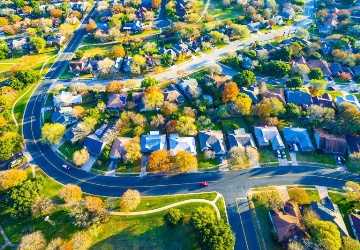The search for a new home can be an exhilarating experience and overwhelming, especially if you're unfamiliar with the area. But with the abundance of online real estate data, you can decide which neighborhoods will best fit you and your family. This article will discuss using real estate data to find the best settings for your next home.

Understanding Real Estate Data
Real estate data can be a valuable tool when buying a home, as it provides insights into the local housing market. Analyzing median home prices, crime rates, and school district ratings can help you determine the best neighborhoods to focus your search.
With this information, you can make an informed and wise decision on where to invest your money and discover the ideal place to reside. Remember to consider your personal preferences and lifestyle when evaluating real estate data to ensure that you find a neighborhood that meets your needs.
Key Points to Remember
● Real estate data includes information on the housing market, such as median home prices and crime rates.
● Analyzing this data can help you make informed decisions about where to buy a home.
● Consider your preferences and lifestyle when evaluating real estate data to find the perfect neighborhood.
Using Real Estate Data to Find the Best Neighborhoods
Here are a few steps to use real estate data to find the best neighborhoods for your next home: Start with your budget and lifestyle needs, research property values and trends in potential areas, examine local amenities and schools, and work with a highly rated real estate agent to guide your search.
Determine Your Budget
Before commencing your quest for the ideal locality, evaluating your finances and ascertaining the amount you can afford to spend on a new residence is imperative. This will help you focus your search on neighborhoods within your price range. Research the median home prices for the areas you're considering and see if they fit your budget. Doing this will save you time and frustration by eliminating neighborhoods outside your financial means.
Research Crime Rates
Safety should always be a top priority when it comes to finding the best neighborhoods to live in. Nobody wants to live in a high-crime area, so it's essential to research neighborhoods with low crime rates. Several websites, such as NeighborhoodScout or CrimeReports, provide information about crime rates in specific areas. By doing your due diligence and researching crime rates, you can find a safe neighborhood that gives you and your family peace of mind.
Important points:
● Ensuring safety must always remain a primary concern when looking for a neighborhood to live in.
● Research crime rates using websites like NeighborhoodScout or CrimeReports.
● Look for neighborhoods with low crime rates to ensure your family's safety.
Check School Ratings
When buying a home, school district ratings are essential to consider if you have children or plan to have them. The quality of education in the local school district can significantly impact your child's future, so it's vital to research before making a decision.
Websites like GreatSchools.org can provide information on school ratings in the areas you're interested in, including test scores, student-to-teacher ratios, and parent reviews. This information can help you determine the best school district for your child's needs.

Look at Walkability Scores
If walkability is important to you, considering neighborhoods with high walkability scores is worth it. These scores consider proximity to public transportation, shops, and restaurants, making it easier to get around without relying on a car. You can use websites like Walk Score to find neighborhoods with high walkability ratings and choose a location that fits your lifestyle. Remember that walkability scores can vary from one area to another, so it's essential to do your research before making a final decision.
Important points:
● Consider walkability scores if you value being able to walk to shops and amenities
● Websites like Walk Score can help you find neighborhoods with high walkability scores
● Keep in mind that walkability scores can vary between neighborhoods, so research is important
Consider Commute Times
When looking for a new neighborhood to live in, it's essential to consider your daily commute to work. Commute times can significantly impact your quality of life, so choosing a community that offers a reasonable commute is necessary. Look for areas near major highways or public transportation to make your daily commute easy. You can also use online tools like Google Maps or Waze to estimate commute times during rush hour. By considering commute times when choosing a neighborhood, you can ensure your daily routine is as stress-free as possible.
Some key points to consider when choosing a neighborhood based on commute times are:
● Look for neighborhoods that are close to major highways or public transportation
● Use online tools like Google Maps or Waze to get an estimate of commute times during the rush hour
● Consider how long of a commute you're willing to tolerate before deciding on where to live
Research the Housing Market
Lastly, research the local housing market to understand home prices and trends. Websites like Zillow and Redfin can provide you with this information. Look for areas where home prices increase, which can signify a healthy housing market.
Real estate data can help you find the best neighborhoods for your home purchase. Following are some vital points to keep in mind:
● Real estate data includes median home prices, crime rates, school district ratings, and walkability scores.
● Establish your budget before commencing your search, and narrow down neighborhoods that fit within your price range.
● Research crime rates and school district ratings to ensure the safety and education of your family.
● Consider commute times by looking for neighborhoods with easy access to major highways or public transportation.
● Use websites like Zillow and Redfin to research the local housing market and look for areas with increasing home prices.
You can find the perfect neighborhood for your next home by analyzing real estate data and considering your preferences.


